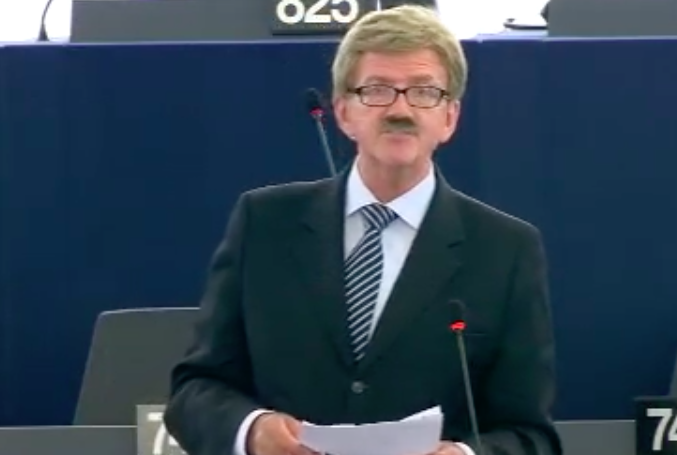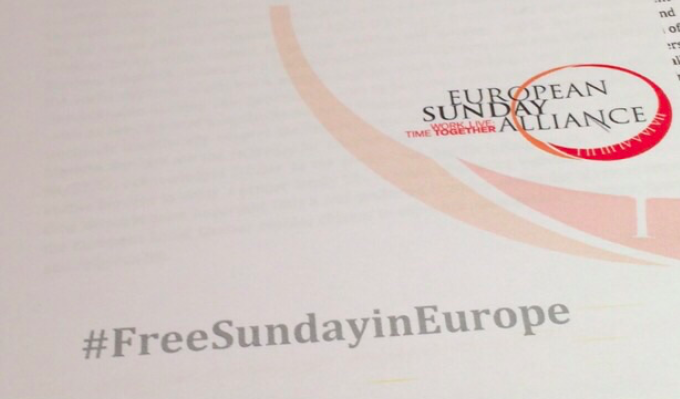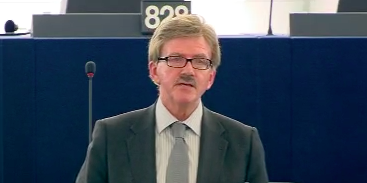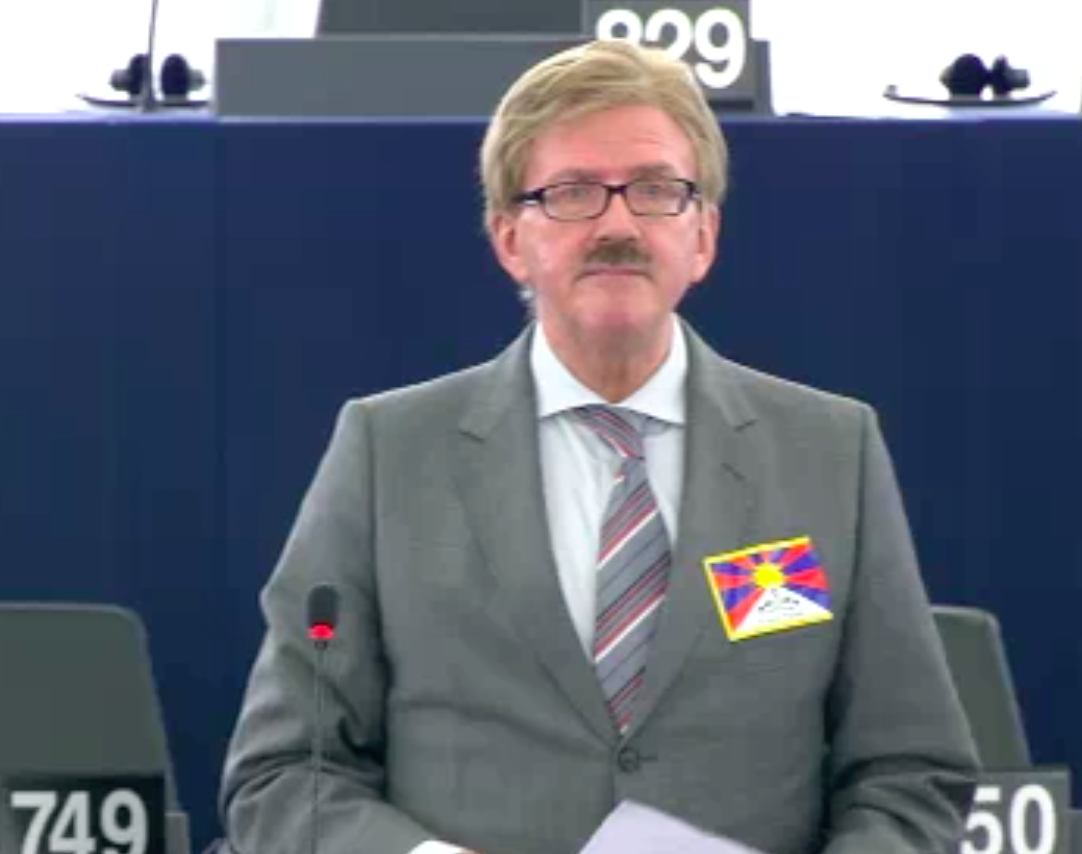TTIP, occupational pensions & the Juncker Plan: CESI speaks to MEP Thomas Mann
Just in time before the Brussels summer recess, CESI spoke to MEP Thomas Mann about recent developments in EU employment and social affairs – most notably in relation to the current revision of occupational pension rules in the EU, the TTIP’s likely social impacts and the potential of the Juncker investment plan to create jobs. This interview continues the ‘CESI speaks to …’-series on insights into EU employment and social affairs hot topics.

Thomas Mann is one of the most experienced EU politicians in the field of employment and social affairs. As a German EPP affiliate, he has been a member of the European Parliament and its Committee on Employment and Social Affairs (EMPL) since 1994. Between 2004 and 2014, he was also Vice-chair of the EMPL Committee and has been a substitute member in the Committee on Economic and Monetary Affairs (ECON) since the late 1990s.
Mr Mann, occupational pension systems in Europe have been built over many decades by the social partners. In early 2014, the European Commission caused a stir when it proposed to revise the Directive 2003/41 on the activities and supervision of institutions for occupational retirement (the IORP II proposal). The file is now being worked on in the European Parliament. What is your view on the dossier?
During the last years, the European Commission has repeatedly tried to tighten the rules for occupational pension systems. In 2008 already, the German Bundesrat indicated that costs for the employers would rise by 20% if harmonisation plans for occupational pension schemes in the Commission became reality. As an MEP my group I have always spoken up against such plans – most recently as rapporteur in the ECON Committee in 2012 and 2013. Instead of “one-size-fits-all approaches” we need tailor-made rules for IORPs in those Member States where action is in fact necessary – for instance in Eastern Europe, where safeguards for occupational pensions are low. Social partners have repeatedly written joint letters to the European Commission, asking to not jeopardize the successful occupational pension systems that have been cautiously put in place over many years in countries such as Germany, Austria and Luxembourg. One such letter, sent in December 2014, noted: “The IORP proposal requires fundamental corrections. The Commission should – other than foreseen in its proposal – abstain from a full harmonisation of prudential supervision rules since this would not be suitable for the different framework conditions of occupational pension schemes in the Member States”.
What could a further European harmonisation in IORP rules mean for countries with cautiously balanced occupational pension systems such as Germany?
The occupational pension systems in European countries are as varied as the social systems. European regulations aiming at uniformity can therefore bring no added value for countries such as Germany, where safeguards for occupational pensions via the ‘Pensionssicherungsverein’ (Pension guarantee fund) are one of the best worldwide and have proven a strong resilience to crises to the test: Since 1975, there has not been a single case of insolvency. Here, harmonisation experiments from Brussels must be out of question. For this, too much is at stake: More than 20 million German citizens are entitled to this important form of pensions; the cover volume of their claims is more than 520 billion euros. More bureaucracy from Brussels would only mean higher costs. The payouts to the pensioners would suffer. Therefore, I believe: instead of full harmonisation, full subsidiarity must apply!
The EMPL Committee adopted its opinion just some weeks ago. How do you assess the outcome of the vote? What are the next steps?
On 28 May 2015 the EMPL Committee voted with 38 votes in favour, with 10 votes against and 2 abstentions against stricter occupational pension rules for countries like Germany. This was an important signal for the further direction of the negotiations on the file. Together with the Dutch EMPL rapporteur Jeroen Lenaers I convinced my colleagues in the EMPL Committee to vote to defuse several harmonisation provisions contained in the Commission’s proposal.
My last pensions report, which was adopted on 21 May 2013 in plenary with 502 votes in favour, 138 votes against and 49 abstentions already made clear that we do not accept the application of Solvency II rules to occupational pension schemes. Indeed, the Commission left Solvency II out of the IORP II proposal. However, at the same time it incorporated a number of Trojan horses that aim to Solvency II through the back door: the Holistic Balance Sheet (HBS), the authorisation clauses, the revision clause and the definition of occupational pension schemes as a financial service. Fortunately, the EMPL opinion advocates improvements in all these points. Now it is important to repeat this success in the ECON Committee report in November and in the plenary vote in December. What worries me though is that discussions in the ECON Committee could be affected by Dutch internal political debates. In the Netherlands there have recently been national-level disputes about tightening rules for occupational pensions and I fear that this debate may be unduly carried to the EU-level. After all, three of the four shadow rapporteurs in the ECON Committee are Dutch.
In November 2014 European Commission President Jean-Claude Juncker presented a 315-billion-euro package to promote the financing of sustainable investments in Europe. The European Fund for Strategic Investments (EFSI) is at the heart of this package. How will the EFSI help bring about investments?
The EFSI Regulation, which is to boost the EU’s economy and implement the 315-billion-euro package, was adopted by the European Parliament on 24 June 2015 with 464 votes in favour, 131 votes against and 19 abstentions. One day later, on 25 June 2015, the Council accepted the EFSI Regulation. The EFSI is intended to provide incentives for the participation of private investors in a range of new investment projects. By taking a part of the risk, the fund is expected to achieve a multiplier effect of 1:15. This leverage effect means that in a period of three years investments worth more than 300 billion euros could be mobilised in the EU.
In the negotiations with the Council and the European Commission, MEPs were able to change the financing structure of the EFSI. What was achieved?
We achieved a lot: We successfully pushed for an involvement in the appointment of the EFSI management’s senior staff. Moreover, the appointment of the managing director and the deputy managing director of the EFSI’s Investment Committee is now subject to approval by the European Parliament. And the list of funded projects will be made available to the public.
It is important that the regulation will now be implemented swiftly. The EFSI must be fully operational as quickly as possible. Funds should flow as of September 2015. After all, the investment activity in the EU has declined by more than 430 billion euros since its peak in 2007. This investment deficit works against Europe’s economic recovery and hurts the EU’s long-term growth. I want to ensure that a major part of the EFSI resources will be directed at SMEs. They are the backbone of the economy and account for two thirds of jobs and 99% of businesses in Europe.
No interview these days without a question on TTIP: More than 15 EP Committees, including the EMPL and ECON Committees, worked out elaborate opinions on the Transatlantic Trade and Investment Partnership which is currently under negotiation. These opinions were merged into a plenary report on TTIP that was adopted earlier this month. The report makes reference to many TTIP-related doubts expressed citizens, the social partners and the organised civil society. Which role does the EP play in TTIP?
TTIP can only enter into force if the EP approves. Therefore our view on TTIP has weight in the ongoing negotiations between the European Commission and the delegation from the USA.
We wanted to discuss and adopt a plenary report on TTIP already in the beginning of June. I had my speech prepared, too. But at 9pm on the evening before the debate, we learned that it had been decided to postpone the debate and vote on TTIP. The compromise text that we had previously reached with other political groups was suddenly on the rocks. What had happened? The TTIP rapporteur Bernd Lange from the S&D group had had trouble securing support for the compromise in his group. It was only in early July that we were finally able to vote in plenary on TTIP. I could then hold my speech, too.
Investor protection, the so-called Investor-state dispute settlement (ISDS) procedure, was one of the most controversial topics discussed in the context of the TTIP report. What is your attitude to ISDS?
During last few months I received up to 200 emails per day from TTIP opponents who criticised proposed measures for investor protection. They believe that an ISDS mechanism is a threat to democracy because, in their view, US-companies could use it as an instrument for waves of lawsuits to turn established EU environmental, consumer protection as well as social and labour standards upside down. Unfortunately, many of these mails contained sweeping judgments, even insults. I advocate a differentiated approach.
I am opposed to private arbitration tribunals and in favour of a European Court of Arbitration which operates in a constitutionally conform manner. We need a system of public arbitration which offers legal certainty to both of the two disputants and which gives both parties the possibility to revise a judgment. Of course, all parties have to respect the law and the legislation of the EU and its Member States.
Many critics of TTIP raise concerns that an EU-US agreement may be linked to social cuts in Europe. Are these fears justified?
TTIP must not lead to social cutbacks! The core norms established by the International Labour Organisation (ILO) such as the freedom of association and the right to collective bargaining must not be put in question. So far, the USA have only committed themselves to these norms but not yet legally ratified the relevant ILO conventions.
In this context, I am glad that in the EMPL Committee opinion and also in the plenary report my amendments calling for European standards in fields such as workers’ rights, social security, vocational training and social dialogue not to be weakened or abolished were taken on board.
dpn – HBS Widerstand im Europaparlament
HBS Widerstand im Europaparlament
dpn – Drei Fragen an vier Experten
Drei Fragen an vier Experten
“Ich kaufe nicht am Sonntag!”
EU-Parlamentarier, Die Allianz für den freien Sonntag und KAB üben scharfe Kritik an Wirtschaftskampagne
“Ich kaufe nicht am Sonntag!”
Köln/Brüssel 02. Juni – Wer sich auch am Sonntag ganz dem Kaufrausch hingeben will, sollte sich umgehend nach Brüssel aufmachen. Um den Kauf-Konsum anzukurbeln, hat die Stadt die Sonntags-Öffnungszeiten soeben drastisch gelockert und wirbt für ihr zweifelhaftes Geschäftsmodell mit großflächigen Plakaten im gesamten Stadtgebiet unter dem Titel: I shop on sundays!
EU-Parlamentarier und Sozialexperten sind entsetzt. “I don´t shop on sundays!”, empört sich die österreichische EU-Abgeordnete Evelyn Regner von den österreichischen Sozialdemokraten. “Vor allem große Unternehmen drängen derzeit massiv auf eine weitere Öffnung des Arbeitsmarktes am Sonntag. Diesem Wunsch sollten wir nicht nachgeben, auch im Sinne einer wichtigen Bremse für unseren beschleunigten Lebensstil.” Regner und ihr Kollege, der deutsche EVP-Abgeordnete Thomas Mann, luden jetzt Experten und Fachverbände zu einer Veranstaltung in das EU-Parlament zum “Arbeitsfreien Sonntag” ein. “Wir brauchen eine Zeit des Innehaltens, für sich selbst, für die Familie und für Freunde”, betont Mann. “Was ist uns mehr wert, der Konsum oder soziale Zusammenhalt?” Regner und Mann sind Mitbegründer der europäischen Arbeitsgruppe “Work-Life-Balance”, unter deren Dach sich neben weiteren EU-Parlamentariern, Sozialverbände, auch Wirtschaftsvertreter versammelt haben. “Auch in Deutschland sägen Wirtschaft, Handel und Politik weiter eifrig am Sonntagsschutz”, trotz einschlägiger Urteile von Bundesgerichten,” erklärt Hannes Kreller von der “Allianz für den freien Sonntag”. “Immer mehr EU-Abgeordnete kommen zu der Überzeugung, daß mit dem Verlust des Sonntags als arbeitsfreien Tag auch ein großes Stück europäische Kulturgeschichte verkauft wird!” Die Bundesvorsitzende der Katholischen Arbeitnehmer-Bewegung KAB, Regina-Dolores Stieler-Hinz warnt davor, daß einmal mehr Frauen zu den Benachteiligten des Sonntags-Shoppings gehören. “Offenbar meint die Wirtschaft, für ihren Profit uns auch noch den letzten Tag der Woche abpressen zu wollen. Das hat nichts mit Freiheit zu tun, sondern ist der pure Konsumterror. Der Sonntag muß Ruhepunkt bleiben; gerade für Frauen, die ohnehin schon mehr und mehr unter prekären Arbeitsverhältnissen und Niedrigstlöhnen leiden.” Der Zeitsoziologe und Beschleunigungstheoretiker Professor Hartmut Rosa von der Universität Jena betonte auf der Veranstaltung, daß der freie Sonntag Menschen vor völliger Erschöpfung schütze. «Burnout- und Depressionen entstehen dann, wenn kein Ende der To-Do-Liste in Sicht ist. An An freien Sonntagen hätte zumindest eine To-Do-Liste Pause, denn man muss nicht Einkaufen gehen”.
http://www.kab.de www.allianz-fuer-den-freien-sonntag.de
Rede Thomas Mann MdEP: Zweiter Jahrestag des Einsturzes des Rana-Plaza-Gebäudes und Sachstand beim Nachhaltigkeitspakt
Antwort Thomas Mann auf die Nachfrage einer Kollegin zum Thema: Übereinstimmung der deutschen Vorschriften über den im Transportsektor geltenden Mindestlohn mit EU-Recht – Beschäftigungsbedingungen einschließlich Mindestlöhne im Straßengüterverkehr.
Rede Thomas Mann zum Thema: Übereinstimmung der deutschen Vorschriften über den im Transportsektor geltenden Mindestlohn mit EU-Recht – Beschäftigungsbedingungen einschließlich Mindestlöhne im Straßengüterverkehr.
Jahresbericht 2013 über Menschenrechte und Demokratie in der Welt und die Politik der Europäischen Union – Rede zur Lage in Tibet
Von Eigenlob und Enthusiasmus
23.01.2015
Link > Von Eigenlob und Enthusiasmus © FNP
Von Julia Lorenz
Beim Neujahrsempfang der CDU im Frankfurter Westen wurden die rund 200 Anhänger schon einmal auf die Kommunalwahl im nächsten Jahr eingestimmt. Als Ehrengast sprach Kultusminister Ralph Alexander Lorz und machte fleißig Werbung für seine Partei.
Zeilsheim. In etwas mehr als einem Jahr, im März 2016, steht die nächste Kommunalwahl an. Bis dahin ist zwar noch ein bisschen Zeit. Aber Werbung für seine eigene Partei kann man bekanntlich nie machen, und so stimmte die CDU sich und ihre Anhänger im Frankfurter Westen auf dem Neujahrsempfang der Christdemokraten in der Stadthalle in Zeilsheim schon einmal auf das Ereignis im kommenden Jahr ein.
Alfons Gerling fehlte
„Die CDU im Westen ist hellwach“, sagte etwa der CDU-Kreisvorsitzende Uwe Becker. „Dass wir hier, mitten in Zeilsheim sind, da wo die Menschen zu Hause sind, zeigt, dass die Christdemokraten dorthin gehören, wo die Menschen auch wirklich sind.“ Immerhin würden sie Politik für Jedermann machen. Gerade die Terroranschläge in Paris vor zwei Wochen hätten gezeigt, dass „wir mit allen Religionen Seite an Seite stehen müssen für eine Gesellschaft, in der jeder sagen und schreiben kann, was er will.“
Rund 200 Menschen waren gekommen, um nicht nur den Worten von Becker, sondern auch denen von Ehrengast Ralph Alexander Lorz, dem hessischer Kultusminister aus Wiesbaden, zu lauschen. Nur einer fehlte zum ersten Mal nach 22 Jahren: Der „Löwe von Zeilsheim“ Alfons Gerling, der 24 Jahre den Frankfurter Westen im Hessischen Landtag vertrat, konnte in diesem Jahr nicht dabei sein. „Eine hartnäckige Erkältung hat ihn an sein Bett gefesselt“, bedauerte Claudia Wesner, Vorsitzende der Zeilsheimer Christdemokraten.
„Es ist schön, hier in einem voll besetzten Saal zu stehen. Das zeigt uns, wie gut die CDU aufgestellt ist“, sagte der hessische Kultusminister Ralph Alexander Lorz, der Ehrengast des Abends. „Aus Wiesbadener Sicht sind wir uns der Bedeutung Frankfurts bewusst, auch in welche Richtung es in Zukunft gehen wird. Deshalb werden wir den Christdemokraten, die bei der Wahl kandidieren, beistehen.“ Und so ließ er es sich natürlich auch nicht nehmen, gleich noch mal Werbung für seine Partei und der schwarz-grünen Landesregierung zu machen. Denn die Koalition, die funktioniere hervorragend. Gemeinsam habe man schon viel erreicht. Vor allem im Bildungsbereich, Lorz’ Steckenpferd. „Wir wissen, dass die Bildung die wichtigste Investition für die Zukunft ist“, sagte der Minister. So setze die Regierung auf die 105-prozentige Lehrerversorgung. Obwohl die Schülerzahlen im Land sinken – außer in Frankfurt –, gebe es nicht weniger Lehrer. Denn man brauche sie, um sie für die Verbesserung der Bildung einzusetzen – wie für die Umsetzung des Pilotprojekts „Pakt für den Nachmittag“. Davon profitiere auch der Frankfurter Westen. Mit dem Projekt soll es bis Ende der Legislaturperiode für alle Grundschulkinder gemeinsam mit den Kommunen eine Bildungsgarantie von 7.30 bis 17 Uhr geben. „Unser Ziel ist es, den Schulen Verlässlichkeit zu geben.“
„Viel erreicht“
Damit war aber noch nicht genug mit dem Lob. Auch Uwe Serke, Landtagsabgeordneter und Vorsitzender der CDU-Arbeitsgemeinschaft West, zeigte sich begeistert von der Arbeit der schwarz-grünen Landesregierung. „Wir haben schon viel erreicht, auch für den Frankfurter Westen“, sagte Serke und nannte als Beispiele den eingereichten Bauantrag für den Neubau des Klinikum Höchst, die geplante Regionaltangente West, die den Taunus mit dem Flughafen verbinden soll, sowie die Sanierung des Höchster Bahnhofs. „All diese Projekte zeigen die gute Entwicklung der westlichen Stadtteile. Wir können dem Jahr 2015 positiv entgegenblicken.“








